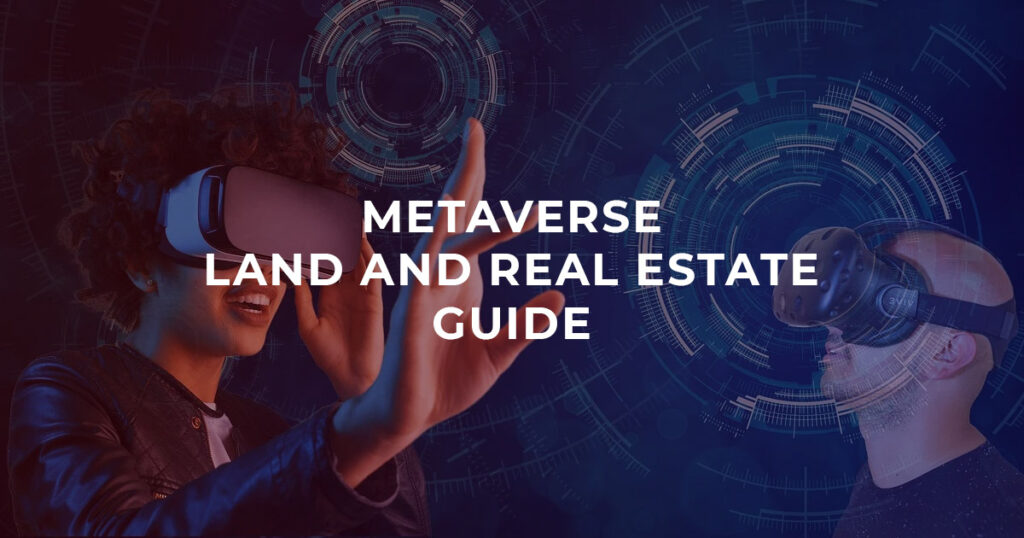The Metaverse Land Grab - Hype or Hottest Digital Real Estate?

The metaverse. This immersive, interconnected digital realm has transitioned from a science fiction concept to a tangible reality, capturing the imaginations of tech giants, investors, and everyday users alike. And with this burgeoning digital frontier comes a new opportunity: owning a piece of the metaverse itself.
Yes, you read that right. Digital real estate is the hottest new commodity, with individuals and corporations investing significant capital into acquiring virtual land within various metaverse platforms. But is this metaverse land grab simply a speculative bubble fueled by hype, or is it a legitimate investment opportunity with real-world potential?
The Rise of Digital Domains: A Look at the Numbers
To understand the scale of this trend, let's dive into some compelling data points. In 2021, metaverse real estate sales topped a staggering $500 million, according to Metaverse Group, a leading virtual real estate company. Furthermore, a report from Republic Realm estimated that metaverse land sales could reach $1 billion in 2022, demonstrating the remarkable growth and investment pouring into this sector.
This surge in interest is driven by several factors. First, the increasing accessibility of VR and AR technology is lowering the barrier to entry for users to experience the metaverse firsthand. Second, major brands, including Nike, Gucci, and Adidas, are establishing their virtual presence in the metaverse, offering unique experiences and products that blur the lines between the physical and digital worlds. These brands aren't just dipping their toes; they're investing heavily. For instance, Nike acquired RTFKT, a digital sneaker and collectibles company, to expand its footprint in the metaverse.
More Than Just Virtual Land: Exploring the Possibilities
The appeal of metaverse real estate extends beyond mere virtual ownership. It presents unique opportunities for businesses and individuals to engage with audiences in new and innovative ways. Consider these potential applications:
- **Virtual Storefronts:** Imagine a retail experience unconstrained by physical limitations. Metaverse stores can offer interactive shopping experiences, personalized recommendations, and access to exclusive digital merchandise.
- **Immersive Events and Entertainment:** Concerts, conferences, and art exhibitions can be hosted in virtual venues, transcending geographical barriers and offering immersive experiences that blend the physical and digital.
- **Community Building and Social Interaction:** Metaverse platforms provide spaces for individuals to connect, collaborate, and foster communities around shared interests, hobbies, and goals.
Navigating the Risks: A Measured Approach to the Metaverse
While the potential of metaverse real estate is undeniable, it's crucial to approach this nascent market with a healthy dose of caution. As with any emerging technology and investment opportunity, risks and uncertainties abound.
The volatility of the cryptocurrency market, which often underpins metaverse transactions, presents a significant risk. Furthermore, the lack of established regulations and legal frameworks for digital ownership raises concerns regarding property rights, dispute resolution, and consumer protection.
Final Thoughts: A Metaverse Shaped by Innovation
The metaverse is still in its early stages of development, and the future of digital real estate remains to be fully realized. However, one thing is certain: the convergence of technological advancements, evolving consumer behavior, and the desire for immersive experiences is driving the creation of new digital frontiers.
Whether metaverse land will be a lucrative investment for the long haul or a fleeting speculative bubble remains to be seen. However, its potential to reshape how we interact, connect, and do business in the digital age is undeniable. As with any technological frontier, a measured approach, a willingness to adapt, and a commitment to innovation will be key to navigating the exciting opportunities and inherent risks of the metaverse land grab.












Comments ()